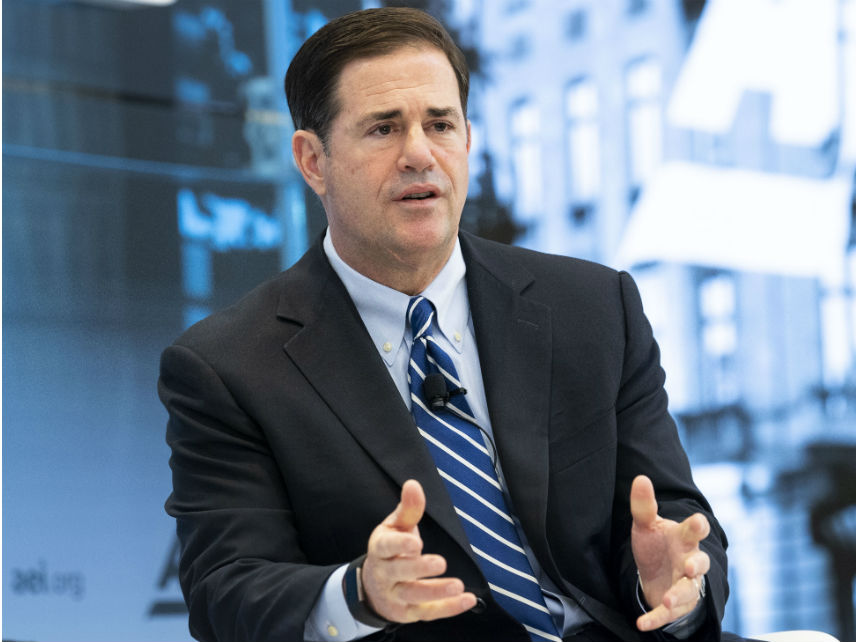Arizona's Governor Wants to Reform Legislative Immunity
The move comes after a state rep used it to get out of a speeding ticket.

Arizona Gov. Doug Ducey is fighting to reform "legislative immunity" in his state, thanks to a scandal involving a member of the state legislature.
As Reason reported a few weeks ago, a body camera video surfaced showing state Rep. Paul Mosley (R–Lake Havasu City) talking with a deputy who had pulled him over. Mosley had been driving 97 mph in a 55 mph zone. In the video, the legislator declares that he can't be penalized because of his "immunity as a government official." He also brags, "Well, I was doing 120 earlier."
The video shows the deputy giving Mosley his driver's license, but not a speeding ticket. A search of traffic violations by the Associated Press appears to confirm that Mosley did not receive a ticket that day.
Gov. Ducey, a Republican, has now signed an executive order clarifying that lawmakers are not exempt from the repercussiosn of speeding. He tweeted yesterday that there is "bipartisan support" for reforming the legislative immunity provision in state law. And indeed, many Arizona Democrats fought to repeal legislative immunity in 2012, 2013, 2014, 2015, and 2016, going back to when then–state Sen. Scott Bundgaard (R-Peoria) attempted to use his immunity after getting into a fight with his girlfriend.
The immunity in question is established in Article 4, Part 2, Section 6 of the Arizona Constitution. It currently states, "Members of the legislature shall be privileged from arrest in all cases except treason, felony, and breach of the peace, and they shall not be subject to any civil process during the session of the legislature, nor for fifteen days next before the commencement of each session." As Reason's J.D. Tuccille has argued, the legitimate purposes of legislative immunity have since evolved into a "get out of jail free" card for politicians with less-than-legal personal habits:
What's unfortunate here is that lawmakers historically granted themselves such immunity to protect against politically motivated arrests by the king, or governor, or whoever might try to lock lawmakers away to affect the outcome of a vote. These immunity provisions were legitimate protections against real abuses—or, originally they were, anyway. Too bad they've degenerated into a comfy privilege for lead-foot legislators with drinking problems.


Show Comments (16)